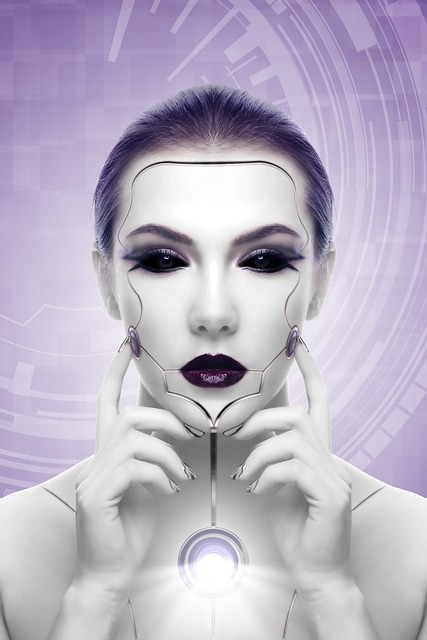“`html
Introduction to Intelligent Systems
Artificial Intelligence (AI) has become a pivotal force in reshaping various sectors of our lives. Among its many applications, the field of healthcare stands out as one of the most transformative. The integration of intelligent systems into healthcare not only enhances patient care but also streamlines processes, making medical services more efficient and effective.
The Role of AI in Healthcare
AI technology is revolutionizing healthcare in multiple ways. From diagnostics to treatment recommendations, these intelligent systems are assisting healthcare professionals in making informed decisions. The ability of AI to analyze vast amounts of data quickly and accurately allows for improved patient outcomes and better resource management.
Enhancing Diagnostics
One of the most significant impacts of AI in healthcare is its role in diagnostics. Traditional diagnostic methods often rely heavily on human expertise, which can sometimes lead to errors or oversights. AI algorithms, however, can analyze medical images, laboratory results, and patient histories with remarkable precision. For instance, AI systems such as IBM Watson Health can evaluate medical records and suggest potential diagnoses, helping doctors make more accurate decisions.
Predictive Analytics for Better Outcomes
Another area where AI shines is predictive analytics. By leveraging machine learning algorithms, healthcare providers can predict patient outcomes based on historical data. This capability enables early intervention and personalized treatment plans tailored to individual needs. For example, AI can identify patients at high risk for chronic diseases, allowing for proactive measures that can prevent complications and reduce hospital admissions.
Streamlining Administrative Processes
Beyond clinical applications, AI is also streamlining administrative processes in healthcare settings. The management of patient records, billing, and appointments can be cumbersome and time-consuming. Intelligent systems can automate many of these tasks, freeing up valuable time for healthcare professionals to focus on patient care.
Efficient Patient Management
AI-driven chatbots and virtual assistants are becoming increasingly common in healthcare environments. These tools can handle routine inquiries, schedule appointments, and provide patients with information about their conditions. As a result, healthcare providers can allocate their resources more effectively, leading to improved patient satisfaction and reduced wait times.
Reducing Administrative Burdens
The administrative workload in healthcare is often overwhelming, with countless forms and paperwork required for compliance and billing. AI systems can automate data entry and streamline billing processes, minimizing errors and expediting reimbursement cycles. This shift not only reduces the burden on administrative staff but also enhances the overall efficiency of healthcare delivery.
Transforming Patient Engagement
Patient engagement is a critical component of successful healthcare outcomes, and AI is playing a pivotal role in transforming how patients interact with their healthcare providers. By facilitating better communication and personalized experiences, intelligent systems are fostering a more proactive approach to health management.
Personalized Health Monitoring
Wearable devices equipped with AI technology are gaining popularity among patients. These devices can monitor vital signs, track physical activity, and even detect irregularities in health metrics. With real-time data at their fingertips, patients can take charge of their health and make informed decisions about their lifestyle and treatment options. This shift towards personalized health monitoring empowers individuals and encourages a more engaged approach to health management.
Improving Communication
The integration of AI into telemedicine platforms is also enhancing communication between patients and healthcare providers. Virtual consultations, powered by AI, allow for more accessible and timely interactions. Patients can receive advice, follow-up care, and even prescriptions without the need for in-person visits. This convenience not only improves access to healthcare but also fosters a stronger patient-provider relationship.
Challenges and Ethical Considerations
While the benefits of AI in healthcare are substantial, there are challenges and ethical considerations that must be addressed. The reliance on algorithms raises concerns about data privacy, bias, and accountability. Ensuring that AI systems are transparent and equitable is crucial for building trust among patients and healthcare professionals alike.
Data Privacy Concerns
With the increasing use of AI in healthcare comes the responsibility to protect sensitive patient information. Healthcare organizations must implement robust data security measures to safeguard personal health data. Patients need to feel confident that their information is handled responsibly, and healthcare providers must comply with regulations such as HIPAA to ensure privacy.
Addressing Bias in Algorithms
Another pressing issue is the potential for bias in AI algorithms. If the data used to train these systems is not representative of diverse populations, it can lead to disparities in care. Addressing bias requires ongoing monitoring and evaluation of AI systems to ensure that they provide equitable outcomes for all patients.
Conclusion: The Future of AI in Healthcare
The integration of AI technology into healthcare is undeniably reshaping the landscape of medical services. From enhancing diagnostics to streamlining administrative processes and improving patient engagement, intelligent systems are paving the way for a more efficient and effective healthcare system. As we move forward, it is essential to address the challenges and ethical considerations that accompany this technological revolution. By doing so, we can harness the full potential of AI to create a healthier future for all.
“`

